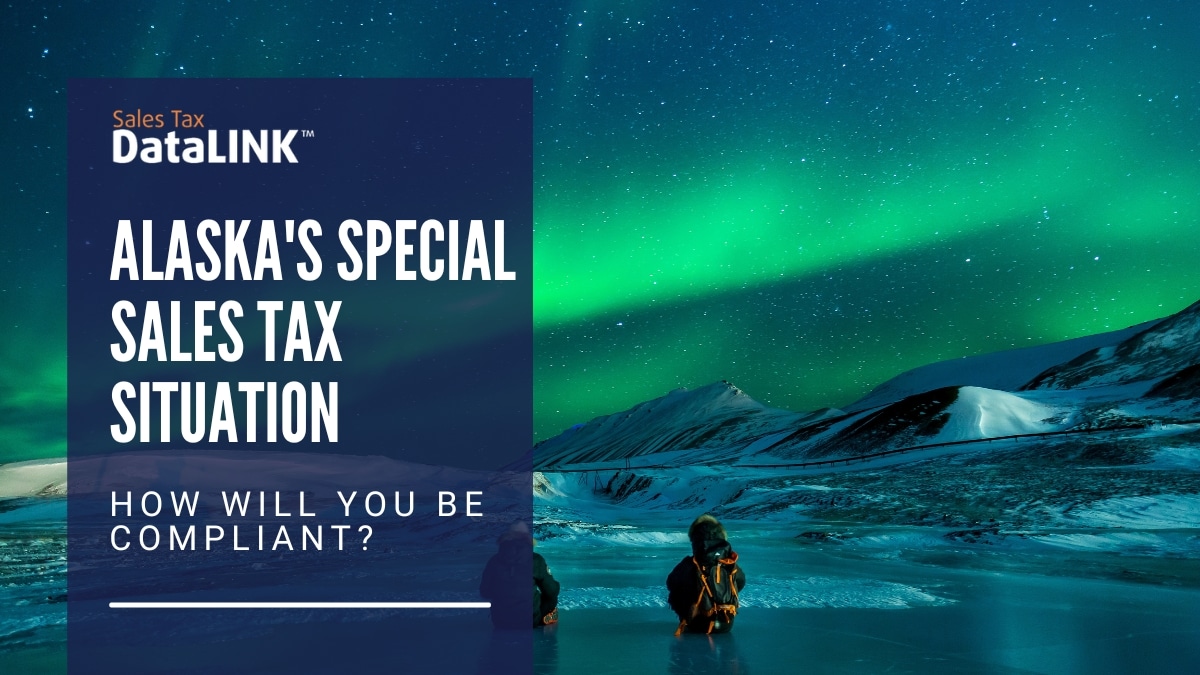Navigating Alaska’s Special Sales Tax Situation: Challenges and Solutions
The Supreme Court decided in 2018 that states can require remote sellers to collect and remit sales tax even when they don’t have a physical presence in the state. Using “economic nexus,” states can take their cut when manufacturers, retailers, and others gain revenue within their borders.
By now, almost every state with a statewide sales tax has taken advantage of the situation and put laws in place. What about the states that don’t have a state sales tax? New Hampshire’s fighting hard against sales tax… but Alaska is taking a completely different approach.
Alaska doesn’t have a statewide sales tax, but it does allow municipalities to charge sales tax. The average is 1.76%, but you can find cities with sales tax rates as high as 7%. There are more than 100 different sales tax jurisdictions in Alaska. Each one has its own tax rates. They also have their own rules on what is taxable, what is exempt, and what kinds of caps are in place.
Alaska also has five different types of municipalities, and tax collection can get complicated. In fact, Amazon, which is already collecting sales tax in Alaska, often gets it wrong because it’s so complex. If Amazon, with plenty of resources it can direct to the problem, can’t collect sales tax accurately in Alaska, what chance do SMBs have of getting it right?
Alaska’s solution
Alaska has a plan to make things easier for remote sellers. They’ll create a statewide sales tax commission to administer the sales tax system. Each municipality will have the option of signing on with the central administration. Tax rates and regulations will not change; each municipality will still have its own rules and rates.
At least in theory, this could mean that remote sellers will have to deal with the central commission’s many rates and rules, as well as with the municipalities that don’t sign on with the central administration. Nome, for example, made its own remote sellers ordinance in August.
The Alaska Municipal League hopes to get municipalities on board with a shared set of definitions for the terms of the sales tax rules. It wants every municipality to draw up a remote sellers law. And it wants this done so that remote collection of sales tax can start in January.
Municipalities?
The Supreme Court didn’t actually say that municipalities could tax remote sellers. States are allowed to require remote sellers to collect sales tax. That doesn’t actually mean that Nome can do so.
The Supreme Court decision was based on a law passed in South Dakota. That law exempted sellers with revenue from South Dakota that fell below a certain threshold. Other states have generally created thresholds, too. It’s generally agreed that this type of threshold keeps the new laws from creating undue burdens for interstate commerce.
How will Alaska match this? So far, there is no visible plan. If the new commission says sales tax must be collected by companies with $100,000 in revenue from Alaska, as many states have done, would sales in municipalities that didn’t sign on be included in that total? Could each municipality choose its own threshold?
Something to keep in mind while contemplating the conundrum of Alaska’s sales tax: Nome has varying sales tax rates depending on the season.
Solution
Alaska is just one of the 50 states and just 100+ of the thousands of different tax jurisdictions. How will you cope with the new sales tax requirements?
One solution is to outsource the whole shebang. The sales tax experts at Sales Tax DataLINK are ready, willing, and able to take on the complexities of sales tax for you in all the jurisdictions where you need to comply. Call (877) 806-7715 and find out how easy it can be.




